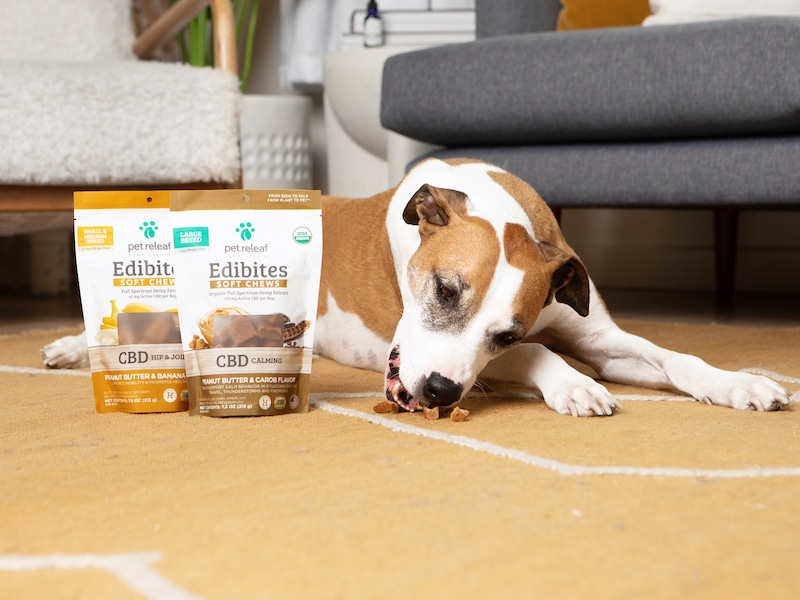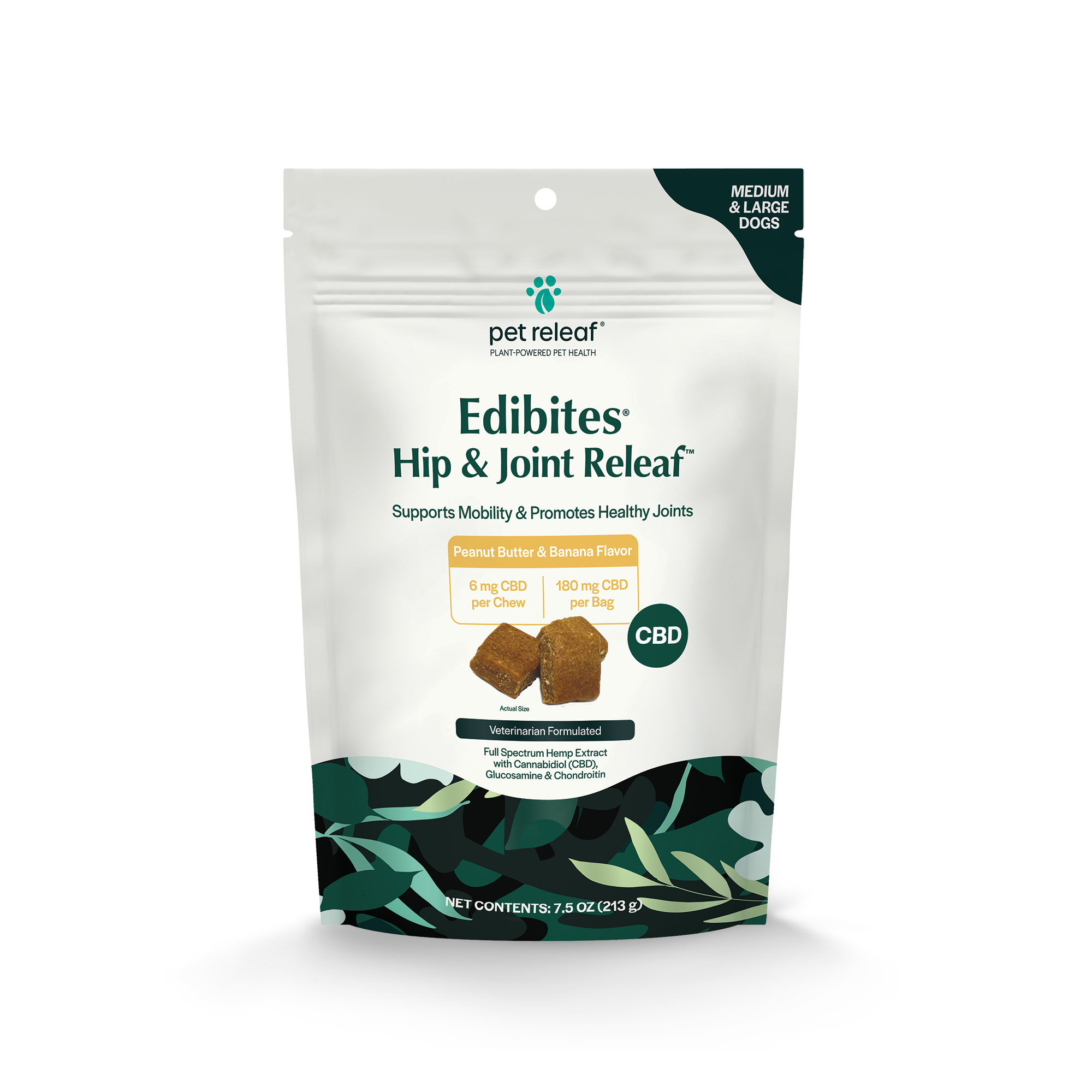
This guide does not constitute medical advice. As with any changes in your pet’s diet, it’s best to consult your veterinarian first, especially if your pet is on medications.
Watching your dog age or be in pain are some of the more difficult parts of having a pet. It’s part of the agreement we make when we adopt a dog, that age and health issues will happen, but that doesn’t make it any less challenging. As your dog ages, they might struggle with having a normal response to inflammation. And since inflammation is uncomfortable for your dog, you likely feel like you need to do something about this condition.
While irritation or inflammation is a natural response from the body to outside invaders or forgiven substances, too much inflammation over long periods of time can lead to extended periods of discomfort.
Thankfully though, through complementary medicine (which is a combination of traditional veterinary medicine and holistic health options) it’s possible to relieve at least some, if not all, of your dog’s inflammation.
What is Inflammation?
When it comes to inflammation, the body does not discriminate. Anything that’s invading or hurting the body, be it a bug bite, a chemical, or an injury, like a broken bone, receives the same response almost immediately. (Did you know that the inflammatory response is the same in all mammals, including dogs, cats, and horses?) While some cases of inflammation can lead to physical distress, inflammation begins as a way to heal the body.
There are five main characteristics of inflammation.
1. Redness
While this is visibly noticeable on the surface of the skin, it is also happening internally to your dog’s inner body tissues when there is internal inflammation.
2. Heat
Heat, and redness, occur from increased blood flow to the affected areas.
3. Swelling
Swelling is a result of an accumulation of fluids.
4. Pain
The body releases chemicals in response to inflammation that causes pain.
5. Loss of function
Loss of function or a reduction in function is due to the above four characteristics of inflammation. Limping, diarrhea, or a stuffed-up nose are examples of a loss or reduction of function due to inflammation.
But what causes excess inflammation, and how do you help treat it in your dog?
What Causes Inflammation in Dogs?
Outside of acute (sudden) inflammation brought on by a bug bite or an injury, here are some of the possible causes of your dog’s inflammation:
1. Genetics
Sometimes dogs, like humans, draw the short stick when it comes to genetics. There isn’t anything you can do about your dog’s genetics, but there are still lots of lifestyle changes, holistic remedies, and medications that can help relieve the symptoms of inflammation.
2. Parasites
If inflammation happens when there are invaders, parasites will trigger a great deal of it. Parasites feed on their host’s body to its detriment. They are the opposite of the symbiotic relationship mammals have with their beneficial gut flora. The good news about parasites is that (outside of heartworms) they are generally quite treatable with the help of a good vet.
3. Obesity
Obesity and high-calorie intake can put stress on your dog’s body, which causes inflammation. While obesity has several causes, it is a treatable condition that can then lower your dog’s level of inflammation.
4. Food allergies or sensitivities
If your dog is sensitive to a type of meat or grain and is being fed that food two times a day for years, that is a lot of inflammation. This is why many animals have found relief from inflammation after dietary changes.
5. Environmental stressors
These also fall into the category of outside invaders. Mold, pollen, dust, and artificial fragrances can all be irritants to your dog’s body, causing inflammation. Like food sensitivities and parasites, it is possible to reduce or eliminate exposure to these substances, which will help alleviate symptoms.
How to Reduce inflammation in Dogs
Here are some ways to treat your dog’s inflammation.
1. Change their diet
Try changing your dog’s diet to combat inflammation. One key piece is choosing a food that is minimally processed. Whether that looks like a higher quality dry food, wet food, or homemade food is up to you. Try looking for a food with a higher protein to carbohydrate ratio.
It also may be a good idea to try out a grain-free diet for your dog and see if that has any impact. There are many grain-free foods for dogs out on the market.
2. Supplements
You can support your dog’s inflammatory response with a variety of herbal and nutritional supplements. Turmeric is helpful for inflammation in humans and may help your dog out as well. One of the active components of turmeric is called curcumin. Curcumin has antioxidant properties that, in addition to zapping free radicals, can help stop the inflammation process.
Glucosamine is another good supplement for inflammation, especially for inflamed joints. It helps the body produce joint lubricants, which offer shock absorption. Glucosamine is also naturally produced by the body. Glucosamine supplements are often combined with chondroitin sulfate, which helps the body build cartilage.
Other supplements and foods to consider are ginger, alfalfa, blueberries, mangos, papaya, celery, and coconut.
3. Essential Fatty Acids
Omega-3 and omega-6 essential fatty acids support normal inflammatory responses in dogs as well as humans. You’ve probably heard that fish oil is good for heart health. It’s because fish oils contain omega-3’s that help support health in the cardiovascular system. Giving your dog fish oils or an essential fatty acid supplement is a great way to support their overall health. In addition to fish oil, hemp seeds are a good source of both omega-3 and omega-6 essential fatty acids. They may support the health of your dog’s heart, coat, and skin as well as her immune system.
There are a variety of essential fatty acid supplements for dogs on the market. Fish oil and hemp seed oil are both (generally) easy to give your dog. Ask your vet for a recommendation or look for a quality brand. As with most things, you get what you pay for, so for the best results, go with a medium to high-end brand, or a reputable brand. Less expensive brands may use lower quality fish or heat in the extraction process which can damage the essential fatty acids.
4. Physical Therapy
Dogs with mobility issues can benefit from physical therapy, just like humans can. Physical therapy for dogs adapts techniques used in human physical therapy. The goal of physical therapy is to decrease pain while supporting the overall quality of life by increasing mobility and function. Physical therapy generally has two components: manual therapy and therapeutic exercise. Manual therapies support the movement of joints, muscles, and connective tissues. Therapeutic exercises are intentional physical movements. Hydrotherapy, which is physical therapy done in water, and gait training, which is training your dog to walk correctly, are examples of therapeutic exercises. It’s important to find a professional physical therapist who specializes in treating dogs. Your vet can likely recommend a good one to you.
Your Dog and CBD
CBD may support your dog’s health by activating the endocannabinoid system, which is part of your dog’s central nervous system. The endocannabinoid system works with many of your dog’s body’s systems, including their digestive system, cardiovascular system, brain function, and more. CBD stands for cannabidiol, which works with your dog’s endocannabinoid system to support the body in finding homeostasis, or a healthy balance.
CBD might have a healthy impact on inflammation! CBD may help maintain a normal inflammatory cytokine cascade, which is part of the inflammatory process. CBD is thought to also help relieve inflammation that comes from normal daily exercise and activities. In general, CBD may help support a healthy, normal inflammatory response. Remember, we don’t want to eliminate all inflammation; some inflammation is healthy and part of the body’s natural healing process. But being able to support a healthy inflammatory response is what we want for our dogs.
Pet Releaf makes the best CBD for pets on the market today. For Pet Releaf, their pets are part of their families, and as such, they want to give them the best CBD products. They partner with farmers who grow hemp in the U.S. and use sustainable and regenerative farming practices to do so. The production of their amazing pet CBD is overseen, from seed to sale, from plant to pet. This allows them to control for quality and makes sure there is never any contamination from chemicals or solvents, which can be an issue with other pet CBD products.
They have a variety of CBD products, ranging from hemp oil (that’s certified USDA organic!) to a hemp oil mixed with wild-caught fish oils to Edibites, which are CBD supplement chews that also contain functional herbs. Does your dog love treats? While Edibites aren’t treats, but CBD and herbal supplement chews, they are delicious, with flavors like peppered bacon and peanut butter and banana. If you’re not sure which CBD product is right for your precious pup, check out Pet Releaf’s helpful product finder, which can help you decide. Try Pet Releaf CBD and see the difference quality can make!




